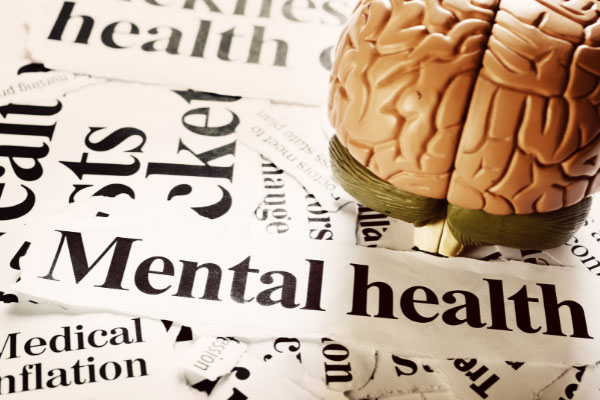An individual who struggles with an addiction to drugs, alcohol, or behaviors and a mental health issue is deemed to have a dual diagnosis or co-occurring disorder, sometimes referred to as comorbidity. It is not uncommon for addiction and mental illness to manifest in combinations and varying degrees of severity.
More than one in four adults living with serious mental health problems also has a substance use problem. (NIMH)

About Substance Abuse and Mental Health Disorders
Addiction and mental health disorders share many factors, including why they developed. Someone addicted to substances and diagnosed with a mental illness has a comorbid condition. The concept of “comorbidity” also reasons that the diseases interact, impacting the severity and outcomes of each. The link between addiction and mental health is based on similar symptoms and experiences known to cause mental health problems and addiction. Furthermore, addiction is a mental illness that must focus on the individual’s mental health rather than on the substances. In this light, identifying why the person uses substances is critical.
Addiction Not Just About the Substances
Past research focused on addiction and how drugs and alcohol distort proper brain function. However, addiction research is now about the individual’s deeply embedded mental and emotional status before using a substance. Addiction can also surface as a behavioral addiction (i.e., gambling, sex, food, etc.) or an emotional or mental health condition. The current focus on how to help people who use drugs and alcohol is to uncover what they are trying to achieve when they are actively addicted to something. For example, are they suffering from anxiety, post-traumatic stress disorder, or other emotional challenges? Learning what happened to someone to make them need substances or engage in an addictive behavior helps doctors help them free themselves from needing to self-medicate.
What Mental Health Conditions Occurs With Addiction the Most?
The following mental health disorders are the most common comorbidities that the medical community acknowledges. Researchers at the National Institute on Drug Abuse list them in order:
- Anxiety Disorders (generalized anxiety disorder, panic disorder, and post-traumatic stress disorder)
- Depression
- Bipolar disorder
- Attention-deficit hyperactivity disorder (ADHD)
- Psychotic illness
- Borderline personality disorder
- Antisocial personality disorder
- Schizophrenia
“Multiple national population surveys have found that about half of those who experience a mental illness during their lives will also experience a substance use disorder and vice versa.” (NIDA)
Who Can Identify if Someone Has a Mental Illness and Addiction?
A professional mental or behavioral health doctor or expert is qualified to diagnose someone with a mental health condition. Today, treatment programs rely on medical doctors and psychiatrists to assess and diagnose a person’s mental health and addiction. Both issues need to be addressed when someone suffers from mental health problems and substance abuse disorders. Rehabilitation, medication, support groups, and talk therapy can treat mental health problems and addictions. Evoke Wellness in Coconut Creek offers Dual Diagnosis treatment programs that target the individual’s emotional and mental health with comprehensive addiction and mental health therapy methods.
Why is a Dual Diagnosis Program Necessary?
Once a patient has undergone and completed a comprehensive medical and psychiatric exam, they will have the option to attend a dual diagnosis treatment program. This program is ideal for a patient diagnosed with mental health conditions and has experienced long-term addiction. Patients in the dual diagnosis treatment center must receive ongoing psychotherapy and medications to minimize their mental health disorder symptoms if necessary. At the same time, people with addictions also require in-depth therapy that addresses why they use drugs and alcohol.
What Therapies are Provided at Our Dual Diagnosis Program?
We provide one on one evidence-based therapy. All patients in dual diagnosis programs meet regularly with a mental health doctor and receive the following behavioral therapy methods and other advanced psychological treatment.
- Cognitive-Behavioral Therapy
- Dialectical-Behavioral Therapy
- Rational Emotive Behavioral Therapy
- Motivational Interviewing
- Medication-Assisted Treatments
- Small-Group Therapy
- One on one Counseling
Mental Health & Addiction Treatment at EVOKE Coconut Creek
Do not let drugs and alcohol misguide how you feel and cope with life. Dual diagnosis is more common than simple addiction or mental illness alone. We have the experience and expertise, and we provide in-depth treatment with compassion. Call to speak to a clinician about our dual diagnosis treatment programs.


